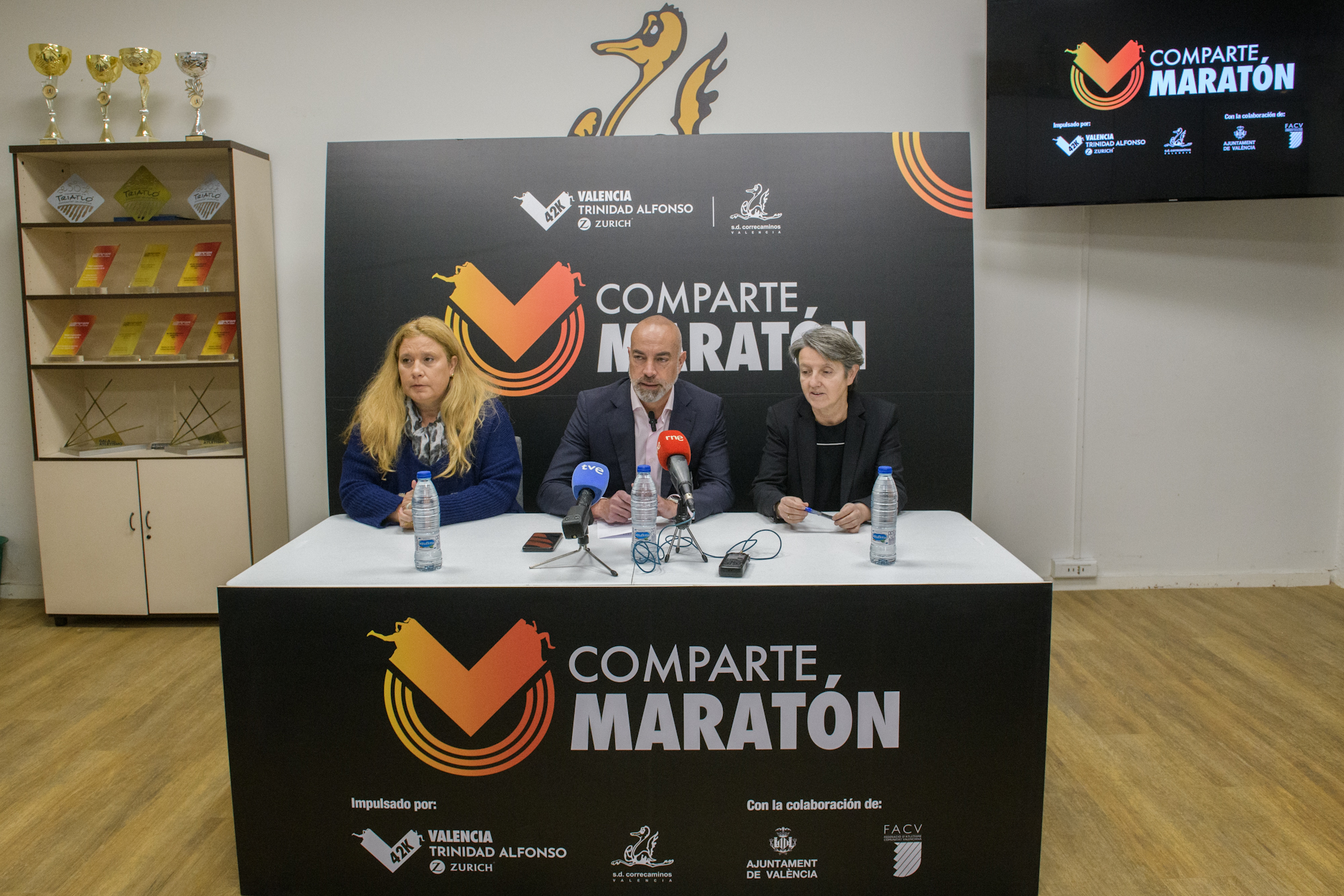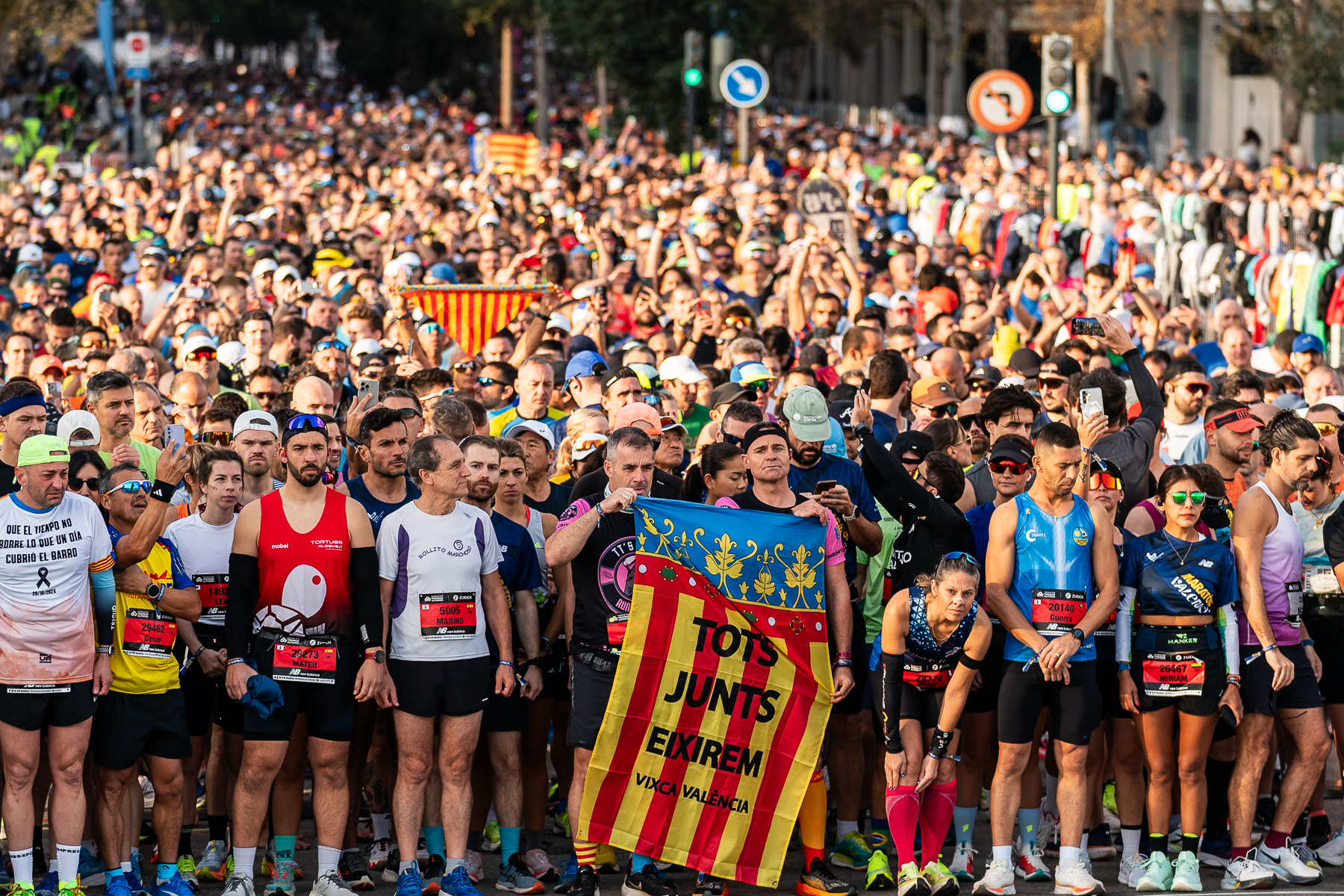10 key nutritional tips to prepare for and to finish a marathon
Getting ready for a race involves more than just training. Nutrition is a key aspect that needs to be factored in. That is why we give you 10 key tips from the Valencian Association of Dieticians and Nutritionists for your preparations to run the marathon.
1- Watch your diet
A runner’s diet needs careful attention throughout the training period . This will avoid common nutritional deficiencies (Iron, Vitamin B12, Vitamin D, Calcium, and so on) that can all too easily waste a year’s training on the day you run the race. A dietician-nutritionist will guide us on how we should drink liquids, and consume gels and snack bars, depending on individual needs and the kind of race.

2- Sports drinks
When undertaking long exercise, a sports drink must contain water, mineral salts, mainly sodium (400-1100 mg/litre) and potassium (120-225 mg/litre), carbohydrates in a 5-10% concentration. If the bottle shows osmotic concentration, choose one with 400 mOsm/Kg of water.
3- Drink at regular intervals
On Marathon Day, you must follow certain timing rules set by the dietician- nutritionist based on weight variations in previous training. As a general guideline, we recommend drinking 250-500 ml of a sports drink one hour before the trial. During the trial, drink 100- 200 ml of water + gel or snack bar or 100-200 ml of a sports drink, every 20 minutes in either case. It is a good idea to drink water in the 2 hours following the trial.
4- Cut down on caffeine
Caffeine can speed up loss of water and electrolytes by boosting urination. The key lies in moderation. If you regularly drink coffee, the effect will not be so marked but if not, you should take care how much coffee you drink. It is advisable not to drink over 4 mg of caffeine per kilo of body weight at a time. That is to say, for someone weighing 70 kg, and used to drinking coffee, you should not ingest over 280 mg of caffeine on the day of the race.
5- Do not go overboard with gels and energy bars
If you consume gels or energy bars instead of an isotonic drink, do not go overboard. These supplements can boost the supply of glucose and electrolytes but remember that they have a very high osmotic concentration and this may cause digestive problems during the race. They should be taken little by little with water (never with isotonic drinks). After you have been running for an hour, we recommend you consume 1 gel every 20-30 minutes washed down with 300 ml of water.
6- Do not try anything new
Do not try anything new in the days before the race, such as new supplements, drinks, gels, etc. You should also avoid eating foods that you have not tried before. It is also a bad idea to eat out the night before the trial. Also be careful with hygiene (wash your hands well, cook foods, clean fruit and vegetables) to avoid gastrointestinal problems that may lessen your performance.
7- Watch out for fibre-rich foods
On the day before the competition, DO NOT eat too much fibre-rich food (vegetables, salads, ‘greens’, cereals, etc.). One should also avoid eating fatty foods in order to avoid ‘gases’ and indigestion. Avoid chewing gum, sweets, and similar products because these make one swallow air. It is a good idea to boost consumption of low-fibre carbohydrates (dehusked rice, potato, quinoa [South American grains], etc.) and cut down slightly on proteins and fibre. Last but not least, try to eat something at least 3 hours before the trial.
8- Avoid alcohol
Alcoholic drinks are a bad idea as a ‘pick-me-up’. They do not rehydrate the body or help recovery after exercise. Alcohol boosts urination, worsening dehydration. The carbohydrates contained in alcohol are also bad news for athletes.
9- Recovery after the race
After the race, take some easily-absorbed carbohydrates rich in glucides (for instance, fruit, rice, starch concentrates). It is a good idea to take these together with high-quality proteins that can be easily digested (such as milk protein, milk, white fish). Food intake should be accompanied by proper rehydration. This helps glycogen levels recover, fostering the repair of damaged muscle tissue.
10- Listen to your body
Listen to your body. It is the first to note when something is wrong. If you feel ill, stop and get help. There may be many reasons why you feel poorly: dehydration, over-hydration, hypoglycemia, hyponatraemia [exessive sodium levels]. Ignoring the warning signs is dangerous and potentially life-threatening — get medical help.
Tips provided by The Association of Dieticians and Nutritionists, Valencia Region
Related news








